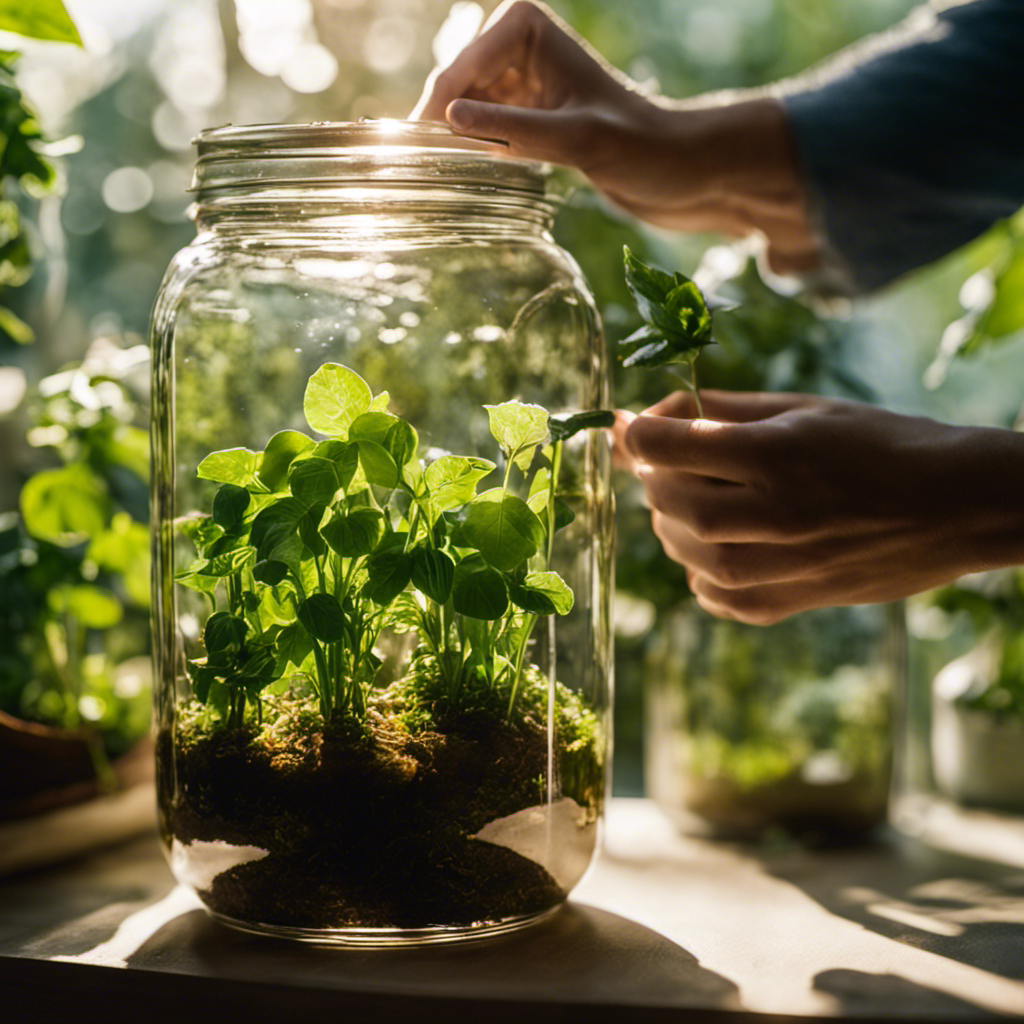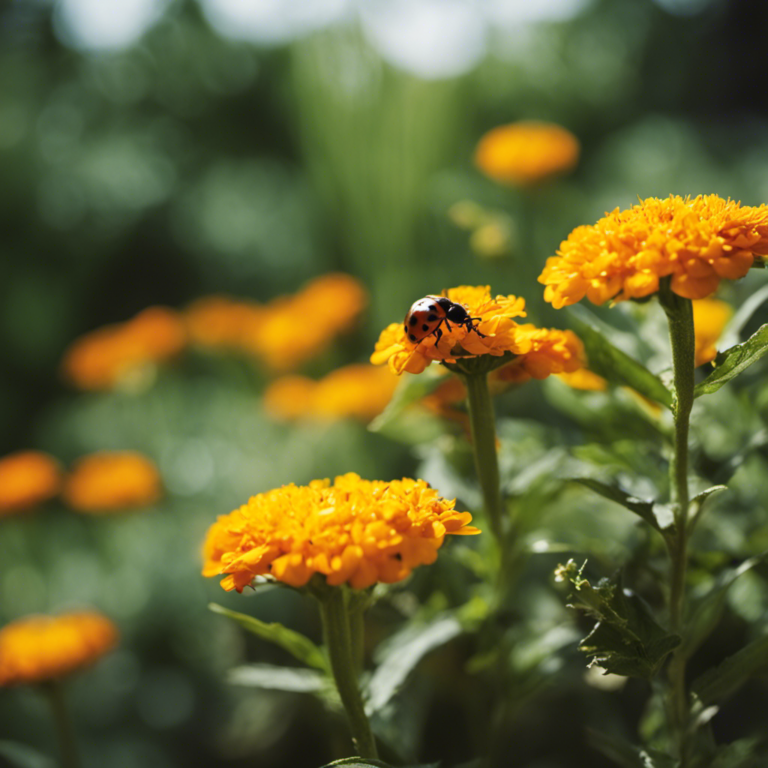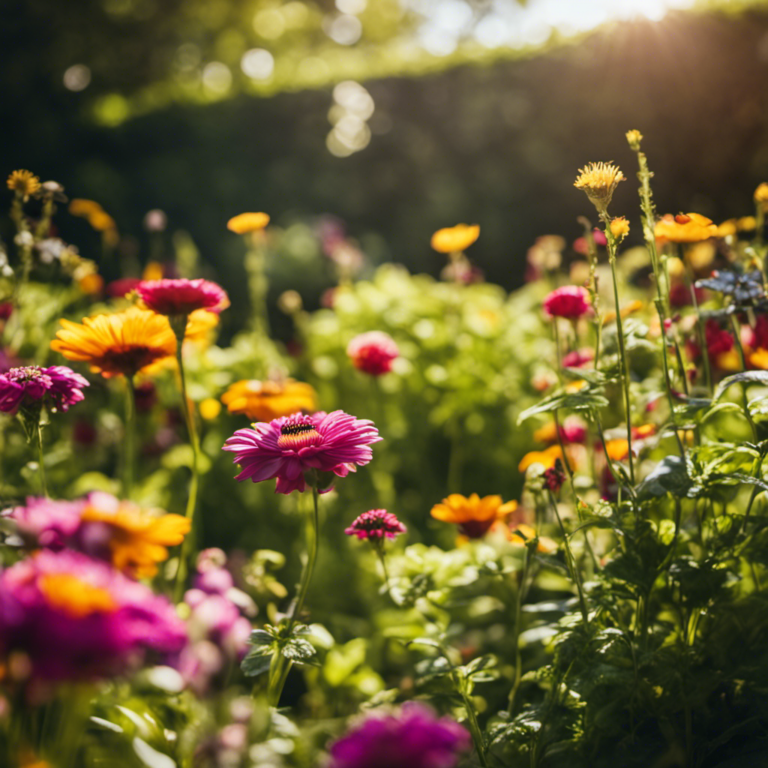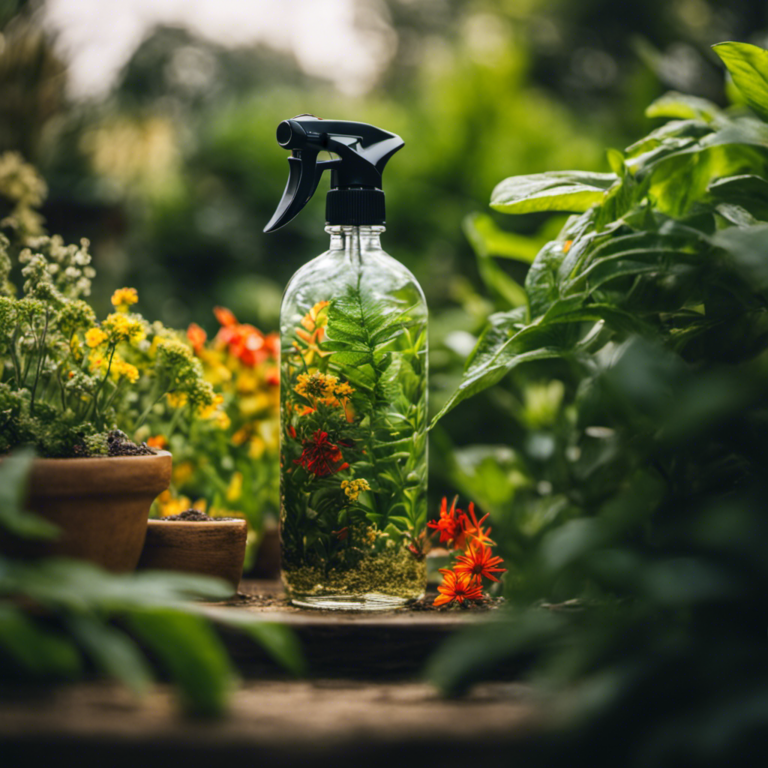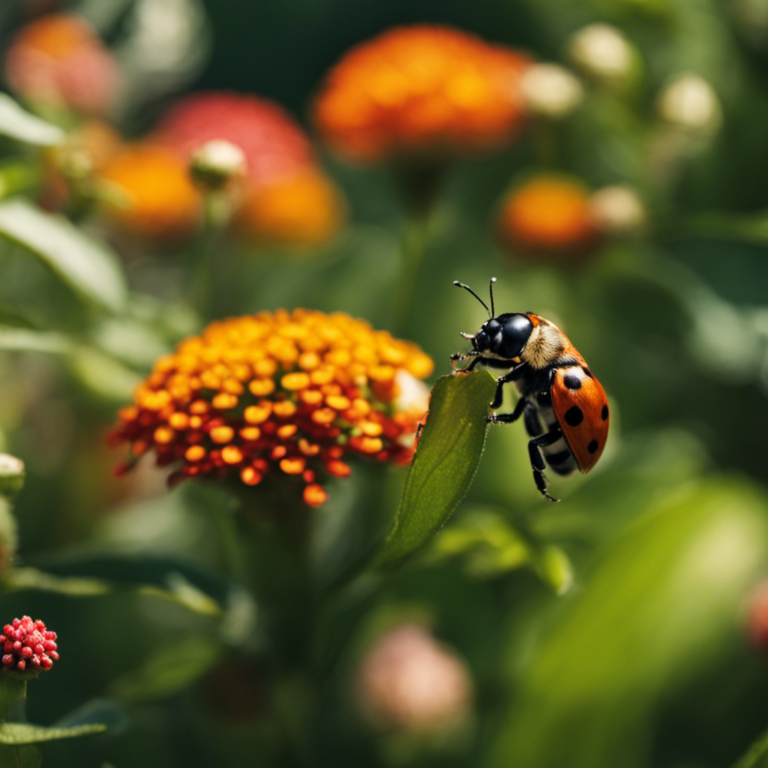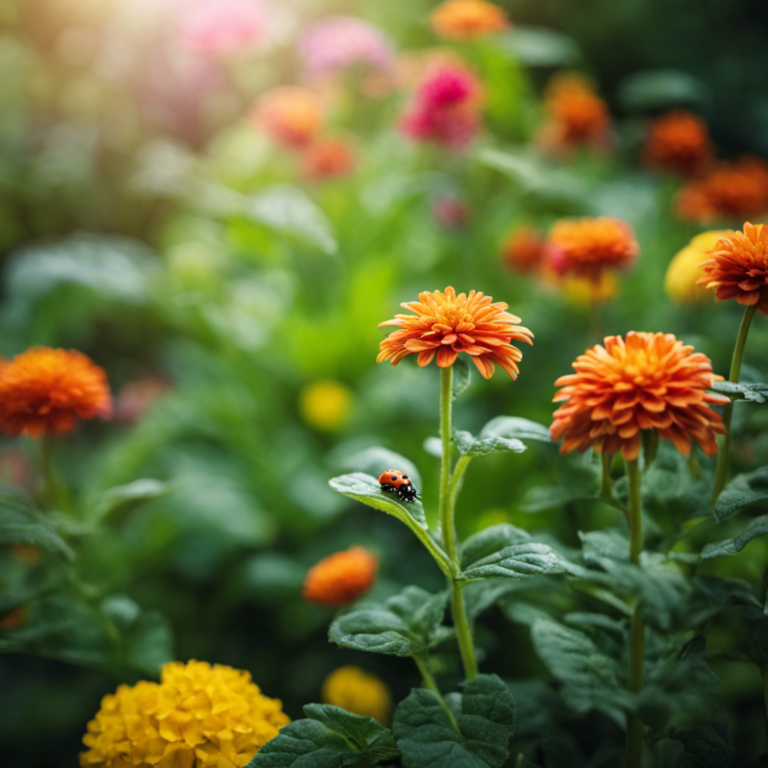Are you looking for a way to improve the health and safety of your garden plants? Consider using natural homemade sprays as a cost-effective and sustainable alternative to chemical pesticides.
These sprays not only effectively control pests but also promote the well-being of your garden and the environment.
In this article, we will explore the benefits of natural homemade sprays and how they can help your garden thrive.
Key Takeaways
Using natural homemade sprays in your garden offers numerous benefits. These sprays not only nurture healthier plants but also protect them from pests without the need for harmful chemicals. By opting for a sustainable and cost-effective solution, you can maintain a thriving garden that promotes the well-being of our planet.
Embracing the power of nature allows your garden to become a sanctuary where beauty and the environment coexist harmoniously. Instead of relying on traditional pesticides, natural homemade sprays provide a safer and more environmentally friendly alternative. They are easy to make and use ingredients that are readily available, such as vinegar, soap, and essential oils.
In addition to being better for the environment, natural homemade sprays also reduce the risk of chemical exposure for you and your family. You can have peace of mind knowing that your garden is free from harmful residues that could potentially affect your health.
Furthermore, these sprays can be tailored to target specific pests or plant diseases, providing a more targeted approach to gardening. For example, a mixture of neem oil and water can help deter aphids, while a solution of baking soda and water can be used to prevent fungal diseases.
By incorporating natural homemade sprays into your gardening routine, you not only protect your plants but also contribute to a greener and healthier world. So why not give it a try and experience the benefits for yourself? As Margaret Atwood once said, "In the garden, beauty is a byproduct. The main business is sex and death."
Healthier Plants With Natural Sprays
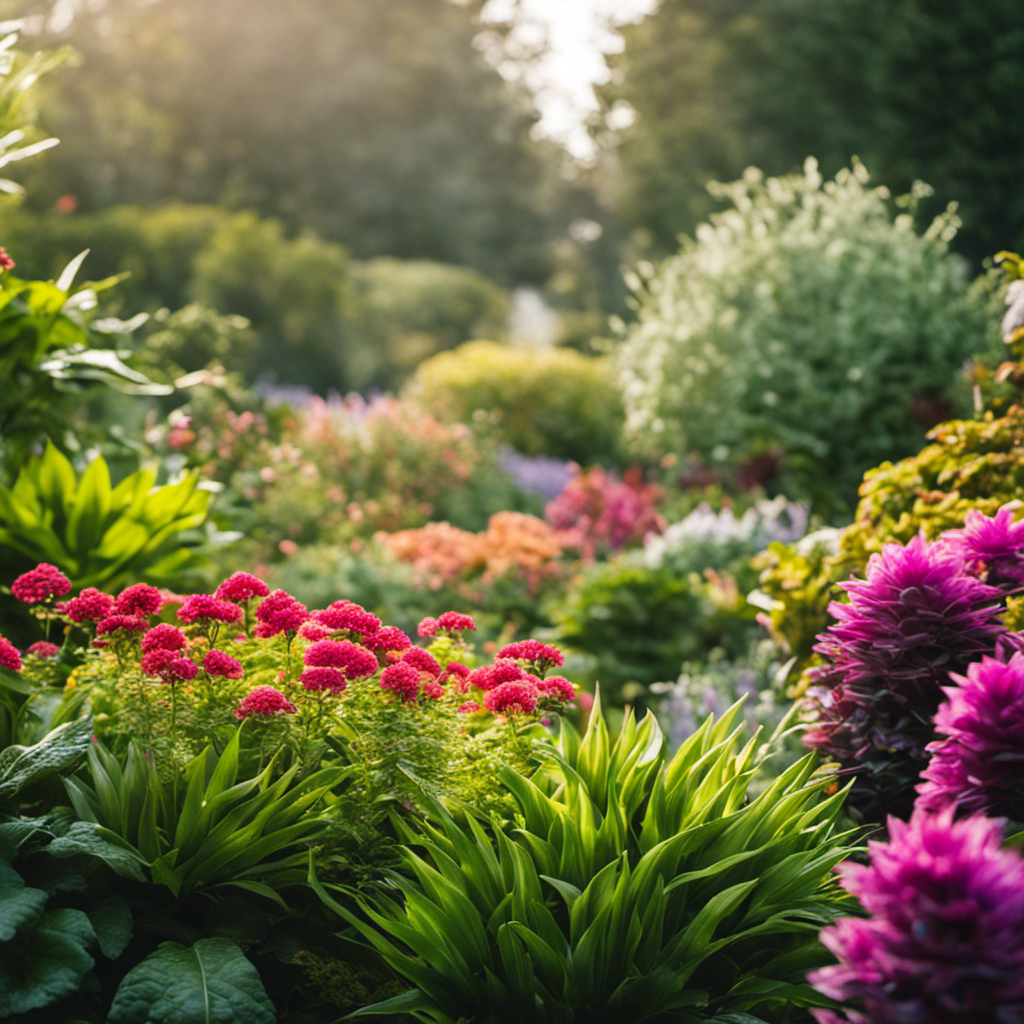
Promoting healthier plants in your garden can be achieved by using natural homemade sprays. Many people are turning to organic gardening methods to reduce their reliance on synthetic chemicals, and homemade insecticides are a popular and eco-friendly alternative to store-bought products.
These sprays can be made using common kitchen or garden ingredients like garlic, onion, chili peppers, and neem oil. They effectively repel or kill pests without harming beneficial insects or pollinators, helping to maintain the natural balance of your garden ecosystem and keeping your plants healthy and vibrant.
In addition to their effectiveness, homemade sprays are also cost-effective and easy to make, allowing you to save money while protecting your plants from pests. Give organic gardening methods a try and experience the benefits of healthier plants with natural homemade sprays.
Safer Alternatives to Chemical Pesticides
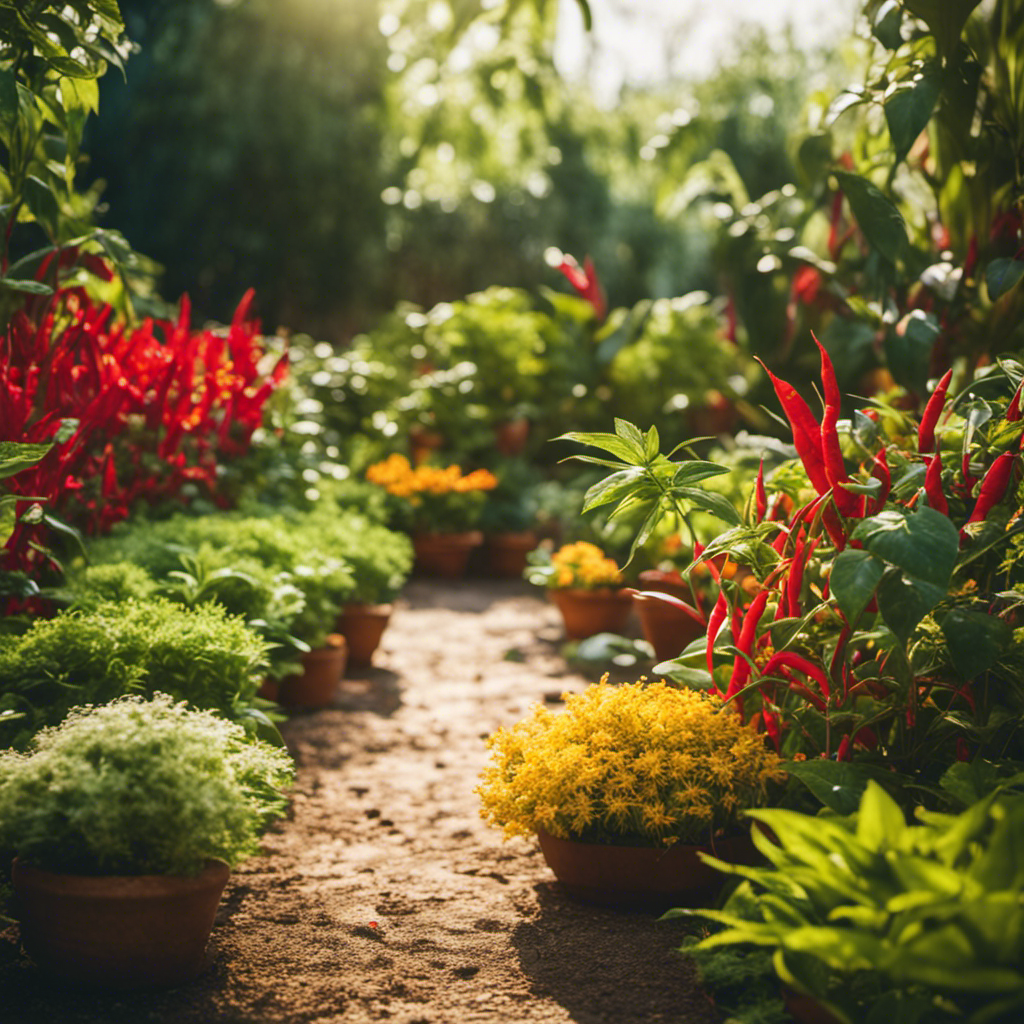
Safer Alternatives to Chemical Pesticides
One effective way to promote healthier plants in your garden is by using safer alternatives to chemical pesticides. These organic pest control methods not only protect your plants from harmful insects but also safeguard the environment and the health of your family.
Here are three homemade insecticides that you can easily make:
-
Neem oil spray: Derived from the seeds of the neem tree, neem oil acts as a natural repellent against pests like aphids, mites, and whiteflies. It’s a safe and eco-friendly option for controlling garden pests.
-
Garlic and chili spray: Create a potent spray by blending garlic cloves and chili peppers with water. This homemade insecticide deters pests such as caterpillars and beetles. It’s a simple yet effective solution.
-
Soap and water solution: Mixing mild liquid soap with water creates a gentle yet powerful insecticide. This solution suffocates pests like mealybugs and spider mites without harming your plants.
By using these safer alternatives, you can reduce your reliance on synthetic chemicals and ensure the well-being of your garden and the ecosystem as a whole. Your plants will thrive, and you can enjoy a healthier environment for your family.
Effective Pest Control With Homemade Sprays
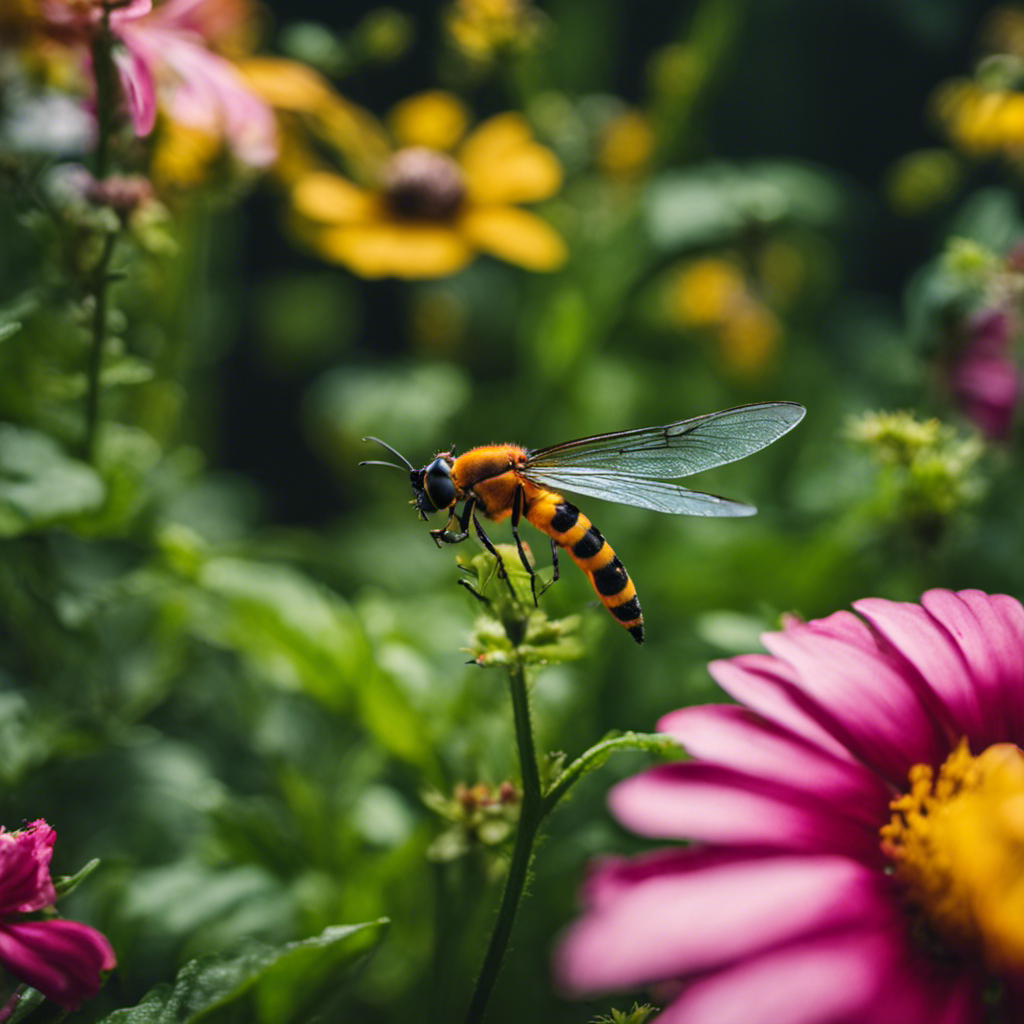
Effective Pest Control With Homemade Sprays
To effectively control pests in your garden, you can use homemade sprays that offer natural and safe alternatives to chemical pesticides. Organic pest control isn’t only better for the environment but also for your plants and the beneficial insects in your garden.
DIY garden sprays can be made using simple ingredients like garlic, neem oil, or vinegar, which have natural pest-repelling properties. These homemade sprays can effectively deter pests such as aphids, caterpillars, and mites, without harming the surrounding ecosystem.
Cost-Effective Solutions for Garden Pests
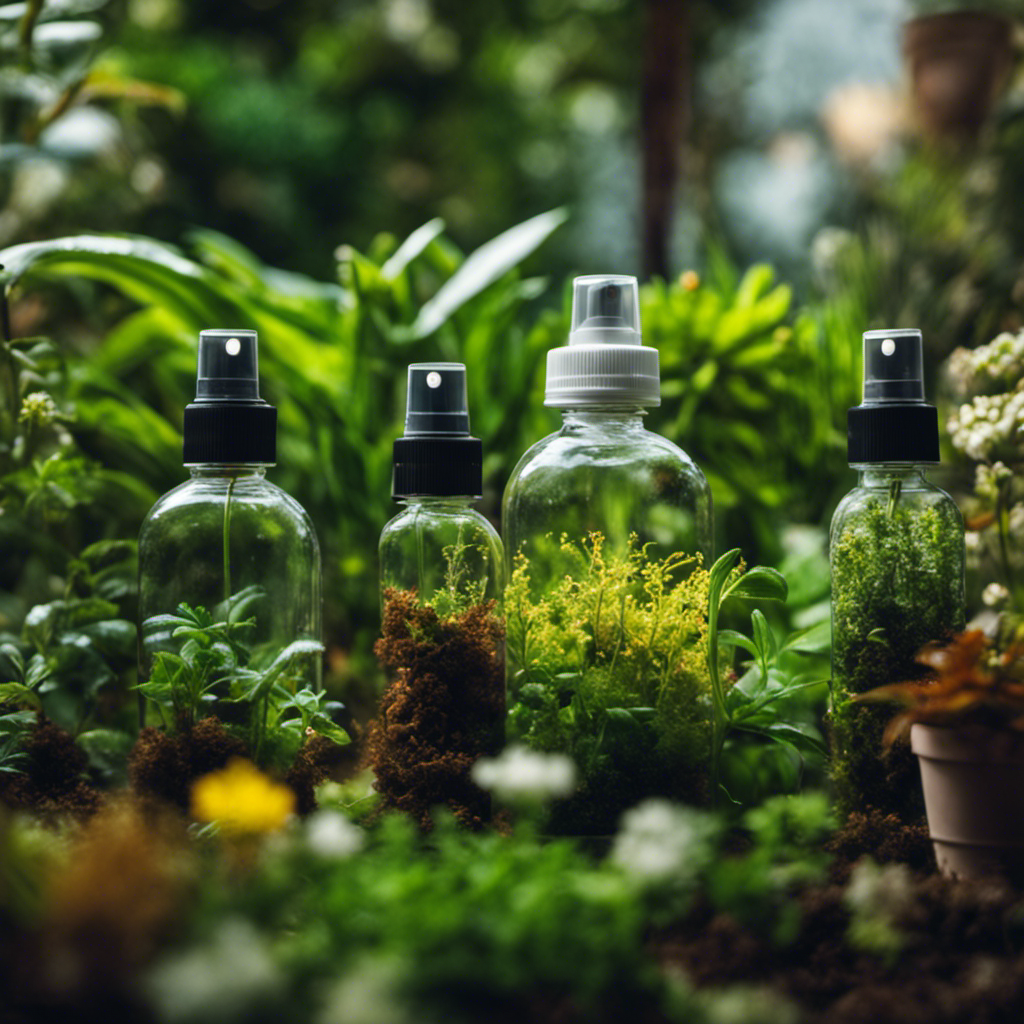
Cost-Effective Solutions for Garden Pests
Save money while effectively controlling pests in your garden with these affordable solutions. Organic gardening can be budget-friendly, and there are plenty of do-it-yourself remedies you can try to keep pests away.
Here are three options that won’t break the bank:
-
Companion planting: Maximize your garden’s natural defenses by strategically planting companion plants. For example, marigolds can deter aphids, while mint can repel ants. By carefully selecting plant combinations, you can create a natural barrier against pests.
-
Homemade insecticidal soap: Create an effective insecticide by mixing mild soap and water. This simple do-it-yourself remedy can help control common pests like aphids, mealybugs, and spider mites. Just spray the solution directly on affected plants to eliminate the pests.
-
Physical barriers: Protect your plants from insects and pests by using physical barriers. Netting can prevent birds and insects from reaching your crops, while row covers can shield plants from larger pests like rabbits and deer.
Sustainable and Eco-Friendly Gardening Practices
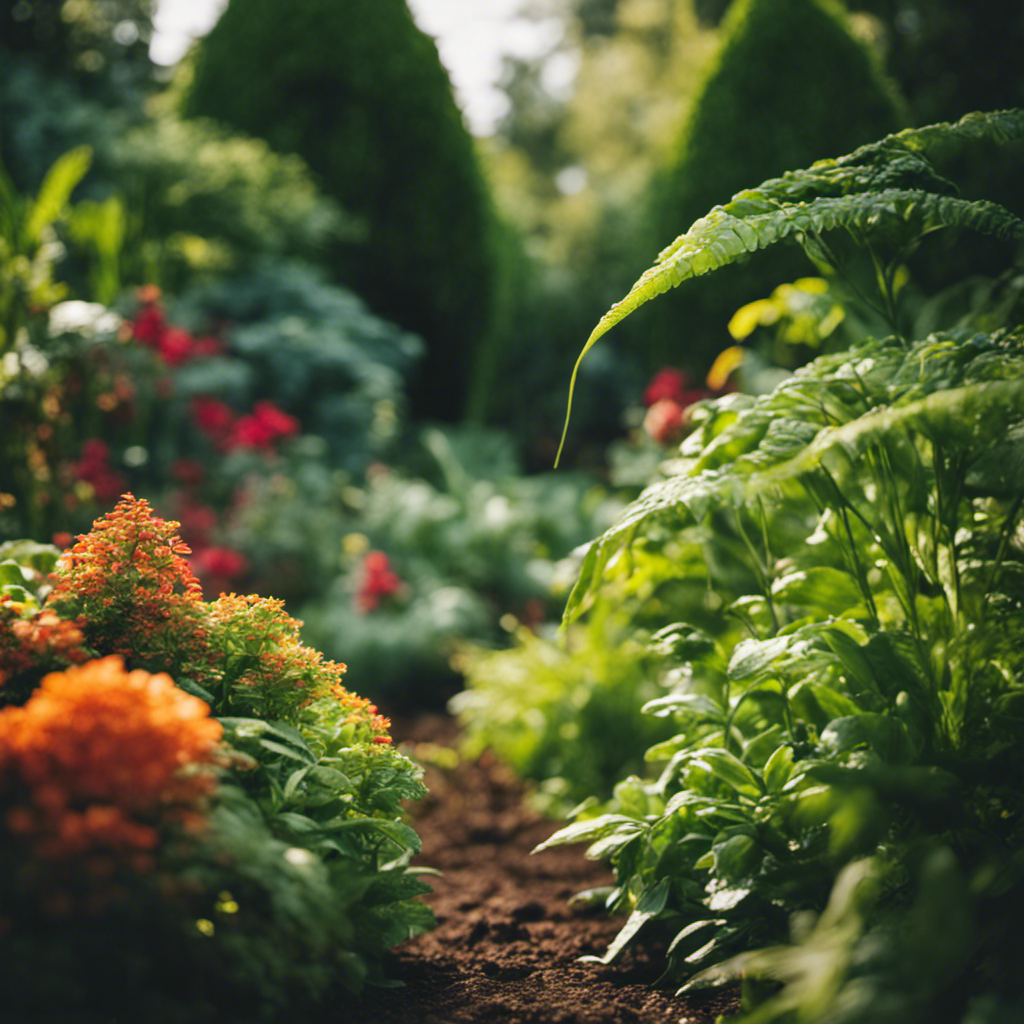
To promote sustainable and eco-friendly gardening practices, you can incorporate various techniques that prioritize the health of your garden and the environment.
One effective method is using organic fertilizers. These fertilizers are made from natural materials like compost or manure, providing nutrients to your plants without introducing harmful chemicals into the environment.
By opting for organic fertilizers, you not only support the well-being of your garden but also reduce the risk of contaminating groundwater and harming beneficial insects and organisms.
Another important practice is water conservation. Implementing techniques such as mulching, drip irrigation, and proper watering schedules ensures that your plants receive the necessary water while minimizing wastage.
Conserving water isn’t only environmentally responsible but also helps lower your water bills.
Conclusion
Using natural homemade sprays in your garden has numerous benefits. Not only do they nurture healthier plants, but they also protect them from pests without the use of harmful chemicals.
Additionally, these sprays offer a cost-effective and sustainable solution for maintaining a thriving garden. By embracing the power of nature, you can take pride in creating a garden that promotes the well-being of our planet.
Let your garden become a sanctuary where nature and beauty coexist harmoniously.
